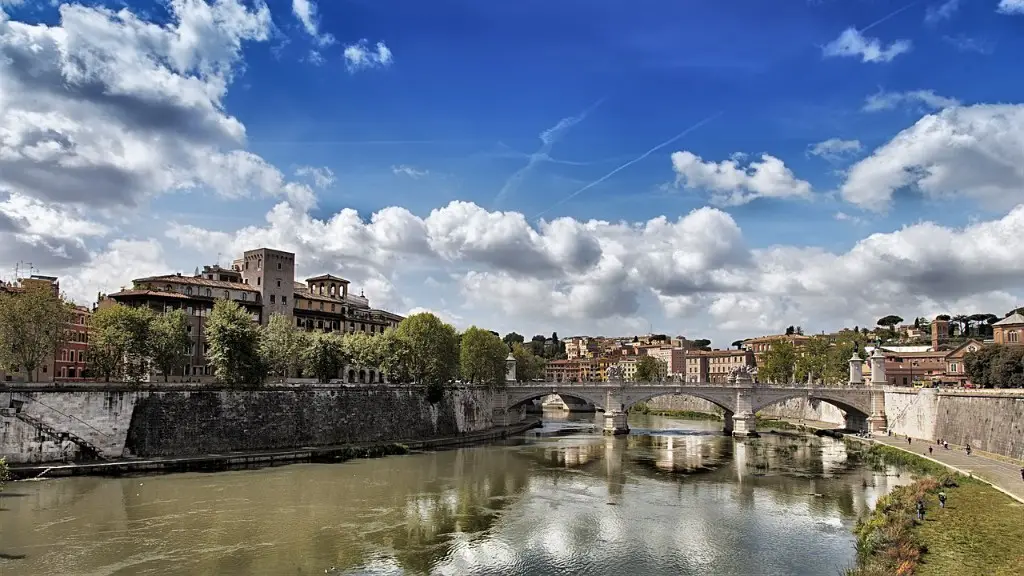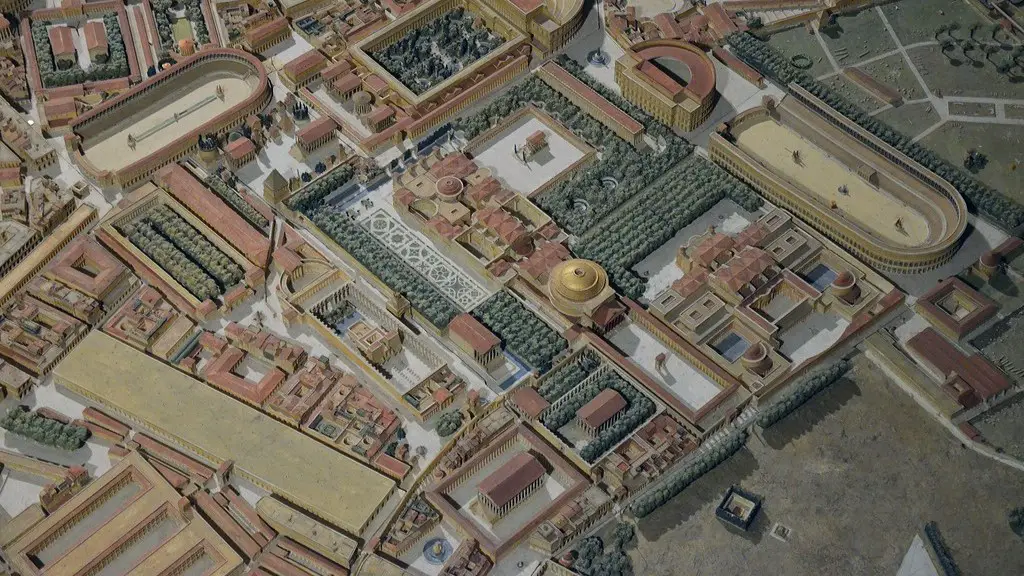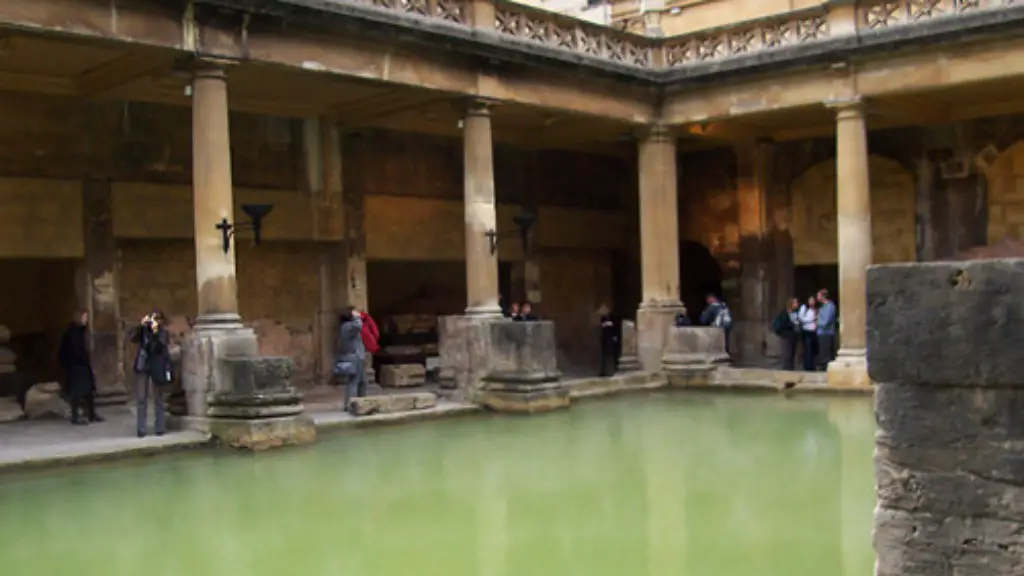Origin of Romans
The ancient Roman civilization is today regarded as one of the most influential civilizations in history. One aspect that makes the ancient Roman civilization stand out is its longevity. The Roman Empire flourished between 753 BCE and 476 CE, which is an impressive 1,500 year reign. Geographically, it encompassed much of Europe, North Africa and the Middle East. Rome was a hub of culture, art and science, making it an attractive place to live. Its population at its peak was approximately 60 million people and its capital city was Rome.
The origin of Roman civilization is debatable, but it is believed to have originated in the city of Romulus in the 8th century BCE. Ancient Roman culture was heavily influenced by various neighbors such as the Etruscans, Greeks, Sabines, and Samnites. Roman culture adapted these influences, resulting in the emergence of a distinctly Roman culture.
The Legal System of Ancient Rome
The legal system of ancient Rome was one of the most sophisticated in its time. The Roman legal system was based on the Code of Justinian, an extensive compilation of past Roman laws and regulations. This code was eventually adopted throughout much of Europe, making it one of the earliest laws in the Western world.
The ancient Romans adopted the practice of codifying their laws rather than relying on oral tradition, allowing them to record and modify them more quickly. This legal system was based on the principle of equity, which means that the law interprets facts with regard to the intention underlying them. This idea of justice was later adopted by other European countries and forms the basis of modern European law.
Religion in Ancient Rome
Religion played an important role in the ancient Roman world, influencing everything from culture and government to social life and literature. The pantheon of Roman gods included Jupiter, Mars, Minerva, Juno, and Venus. These gods were worshipped by the Roman state in an organized pantheon and all Roman citizens were expected to give them reverence and offerings.
Additionally, the ancient Romans had a sophisticated system for ethical and religious beliefs. They believed in fate being predetermined by the gods and societies were guided by religion and philosophy. Religion in the Roman world was not seen as a fixed set of beliefs, but was constantly adapted to fit the changing times and political situation.
Philosophy in Ancient Rome
Philosophy was an integral part of the ancient Roman world, with many prominent thinkers such as Cicero and Seneca. Roman philosophy was heavily influenced by the Greeks, who laid the groundwork for the study of philosophy in Western civilization. There were many schools of thought, including Stoicism and Epicureanism, which profoundly impacted Roman politics and culture.
Roman philosophy also included a belief in personal immortality and the idea of striving for excellence. This concept held that a person could be immortalized and remembered through their deeds, which was a popular motivation for many in the ancient Roman world.
Culture in Ancient Rome
Culture was an important part of the ancient Roman world, with art, literature and architecture that was admired and sought after by people around the world. Roman art was highly influenced by the Greeks, but was often novel and reflective of Roman society. Classical literature in Rome was written by authors such as Virgil, Horace and Livy, and was considered some of the best in history.
Roman architecture was also an impressive feat, with grand structures such as the Colosseum, aqueducts, roads and bridges. This architecture stood the test of time and many of these structures still exist today, a testament to the Roman empire’s strength and endurance.
Who are the Ancient Romans Today?
The ancient Romans, although no longer a major political and military force, still have a lasting effect on the world today. They have made significant contributions to culture, art, literature, architecture, law, religion and philosophy. Additionally, the Roman Empire is one of the most influential empires in history, as its influence can still be seen today in the Western world.
For instance, the Latin language, which was used throughout the Roman Empire, is still used today as a lingua franca in the European Union and as an official language in many countries. Additionally, the Roman calendar is still used in much of the Western world, with the months named after their Roman gods. Roman law was also influential in the creation of many other legal systems, such as in England, Germany and Canada.
Finally, the study of ancient Rome is still alive and well in school curriculum and universities around the world. The ancient Romans left a lasting imprint on the world, and it is essential that we continue to study and appreciate their impressive accomplishments and legacy.
The Impact of Ancient Roman History Today
The impact of ancient Roman history on today’s world is enormous. From the legal system to language and architecture, the ancient Romans have had an immense influence on modern society. The legacy of the ancient Romans is still seen in many aspects of our lives today and understanding their history is an important way of understanding our own.
The importance of the legacy of the ancient Romans can also be seen in the study of language, literature, art and philosophy. Many of the works of ancient Rome have been preserved and adapted for modern use, influencing countless people around the world. Additionally, the study of ancient Rome helps us to understand the roots of many modern institutions, from government to religion.
The Legacy of Ancient Rome in Popular Culture
The legacy of ancient Rome can also be seen in modern popular culture. Movies, television shows, video games, books and other forms of media often draw upon the history, art and culture of ancient Rome. This allows the legacy of ancient Rome to be preserved in a form that can be accessed by a broader audience.
Many major Hollywood films were based on ancient Roman history and culture, such as 300, Gladiator, Spartacus and Ben-Hur. Video games such as Total War: Rome and Rome: Total War also draw on the rich history of the Roman empire and its many wars. Additionally, Rome-themed board games such as Trivial Pursuit and Risk allow modern players to relive the Roman era.
The Significance of Ancient Rome for the Future
The legacy of ancient Rome will continue to be an important part of the future. Its influence on the world cannot be denied and it is essential that we understand the many ways in which it shaped the world. Through the study of ancient Roman history, we can gain insights into our own world and learn from the many accomplishments of the ancient Romans.
The importance of understanding the ancient Roman world is further compounded by the fact that it can provide invaluable information to those in politics and diplomacy. Through careful study, we can gain insight into effective governance, statecraft and diplomacy and apply these lessons to our own societies. Additionally, by studying Rome, we can gain a better understanding of our own cultural heritage, making our own societies stronger through a deeper knowledge of history.


